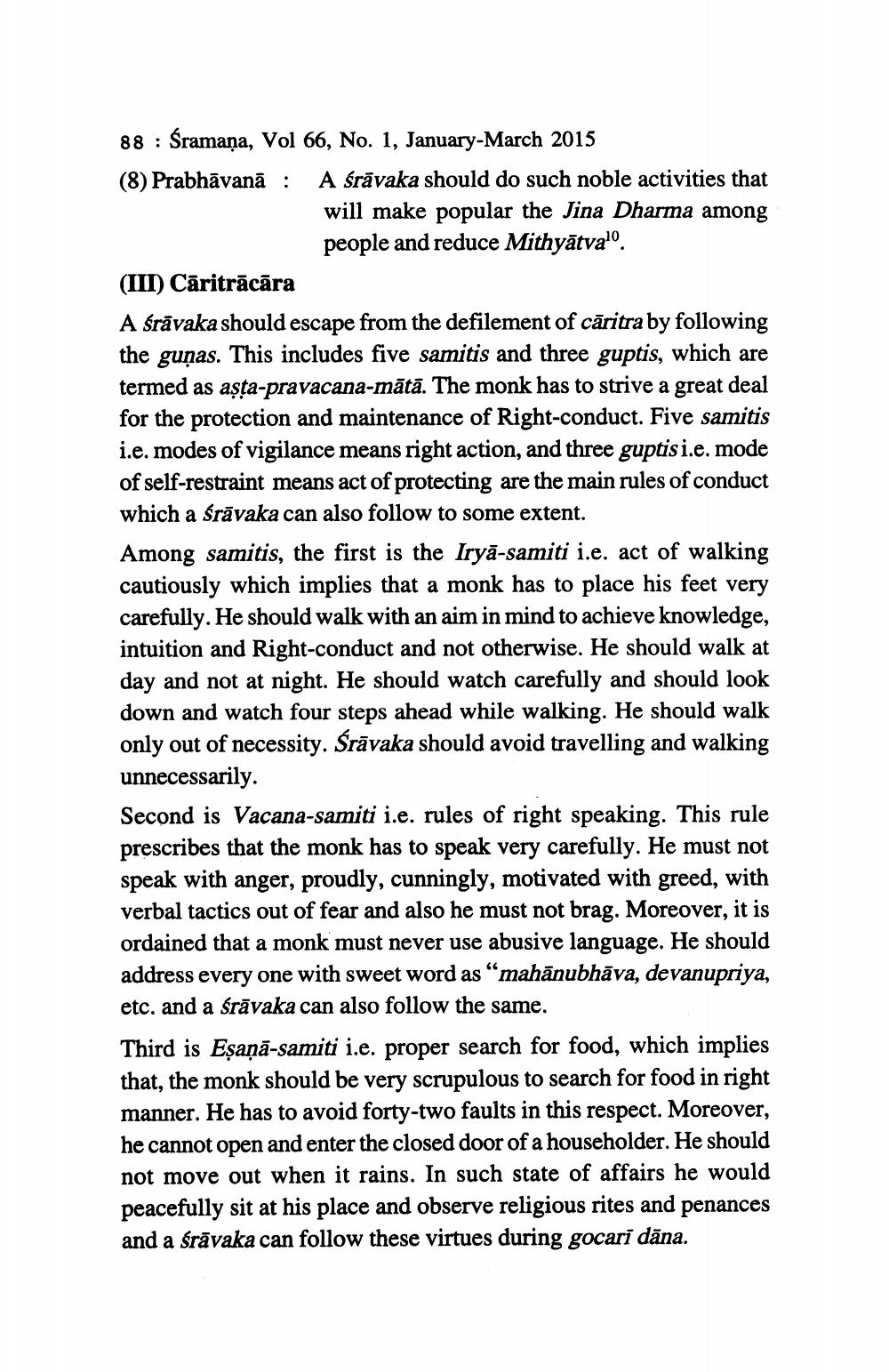________________
88 : Śramaņa, Vol 66, No. 1, January-March 2015 (8) Prabhāvanā : A śrāvaka should do such noble activities that
will make popular the Jina Dharma among
people and reduce Mithyātva''. (III) Căritrācāra A śrāvaka should escape from the defilement of cāritra by following the guņas. This includes five samitis and three guptis, which are termed as asta-pravacana-mātā. The monk has to strive a great deal for the protection and maintenance of Right-conduct. Five samitis i.e. modes of vigilance means right action, and three guptisi.e. mode of self-restraint means act of protecting are the main rules of conduct which a śrāvaka can also follow to some extent. Among samitis, the first is the Iryā-samiti i.e. act of walking cautiously which implies that a monk has to place his feet very carefully. He should walk with an aim in mind to achieve knowledge, intuition and Right-conduct and not otherwise. He should walk at day and not at night. He should watch carefully and should look down and watch four steps ahead while walking. He should walk only out of necessity. Śrāvaka should avoid travelling and walking unnecessarily. Second is Vacana-samiti i.e. rules of right speaking. This rule prescribes that the monk has to speak very carefully. He must not speak with anger, proudly, cunningly, motivated with greed, with verbal tactics out of fear and also he must not brag. Moreover, it is ordained that a monk must never use abusive language. He should address every one with sweet word as “mahānubhāva, devanupriya, etc. and a śrāvaka can also follow the same. Third is Eşaņā-samiti i.e. proper search for food, which implies that, the monk should be very scrupulous to search for food in right manner. He has to avoid forty-two faults in this respect. Moreover, he cannot open and enter the closed door of a householder. He should not move out when it rains. In such state of affairs he would peacefully sit at his place and observe religious rites and penances and a śrāvaka can follow these virtues during gocari dāna.




